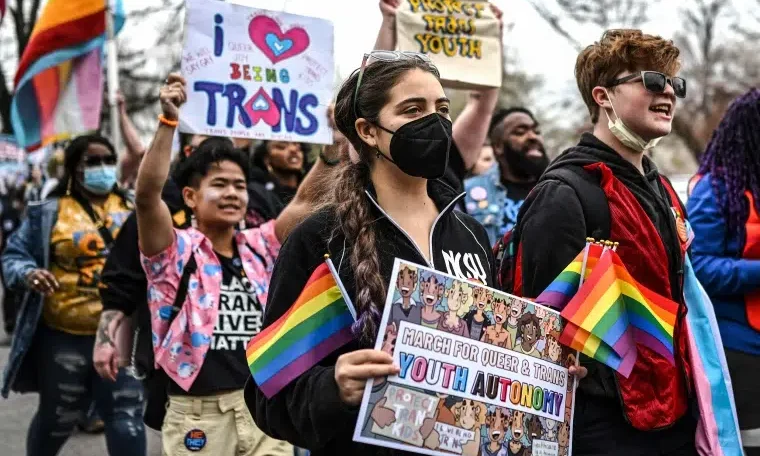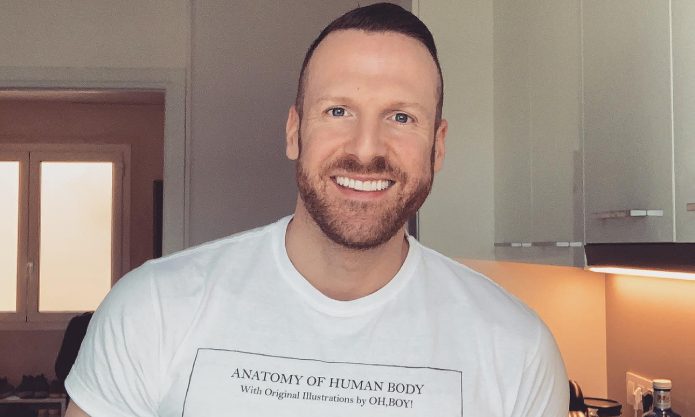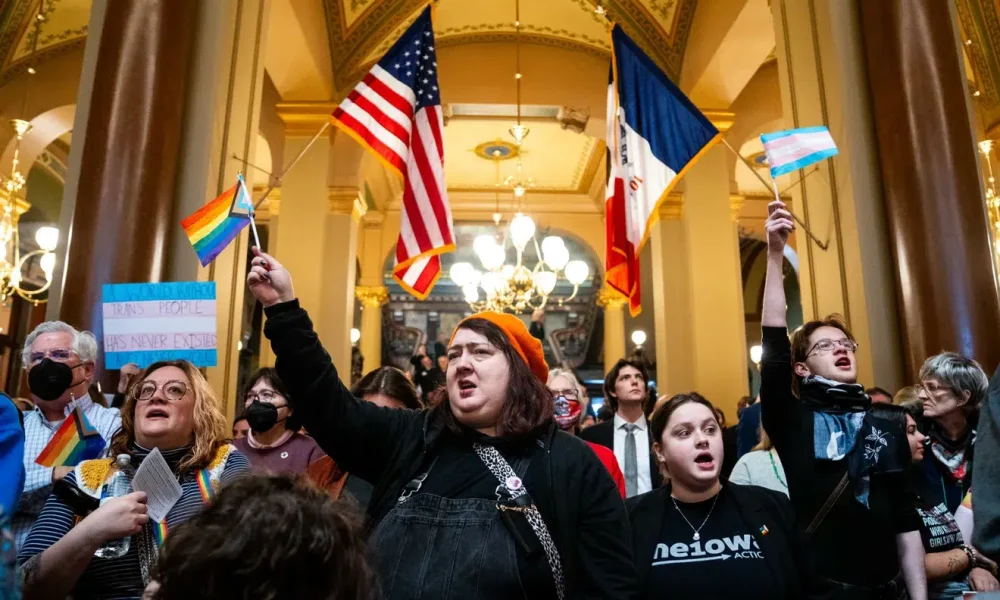Hundreds of transgender individuals and their allies gathered at the U.S. Capitol on Saturday for a powerful protest against what they see as a widening assault on the transgender community under the Trump administration.
Hope Giselle-Godsey, the director of communications for the GSA Network, which supports trans and queer youth, spoke passionately about the ongoing fight for transgender rights. “Too many of us have come here today in an effort to protest for things that we should not have to beg for: our civil rights, our children, our medical care, access and resources, and the ability to fight for a country that doesn’t give a damn about us,” she said, according to The Washington Blade.
Giselle-Godsey’s comments were met with cheers from the crowd, as she emphasized that transgender people would continue to fight for their rights. “We have been here, we will always be here,” she declared. “And there is no legislation, there is no piece of paper, document, or thing that ‘that Orange’ can sign that is going to make us disappear.”
The rally was in response to a series of controversial actions taken by the Trump administration in recent weeks. Among the most notable were executive orders aimed at banning healthcare for transgender youth, barring transgender athletes from competing in school sports, and blocking changes to gender markers on U.S. passports. The administration also moved to expel transgender service members from the military and shut down critical programs like USAID, which provides life-saving medications to vulnerable communities globally.
The Transgender Unity Rally, organized by the Transgender Unity Coalition, began at the Capitol and proceeded with a march to the Ellipse, a large park located at the southern end of the White House. Participants, holding handmade signs and waving trans and rainbow Pride flags, chanted, “Out of the closets and into the streets!” as they made their way along Constitution Avenue.
VIDEO THREAD: Hundreds participated today in the Transgender Unity Rally and march from the United States Capitol to the White House.
“Protect trans kids!” they chanted. “Out of the closet, into the streets!”
“Trans rights are human rights!” pic.twitter.com/ZHp3klDbW1
— Ford Fischer (@FordFischer) March 1, 2025
One of the rally’s speakers, Georgetown University professor Chloe Schwenke, who previously served as an Obama appointee to USAID, condemned the administration’s actions, particularly the closure of USAID, which provides critical aid to LGBTQIA communities worldwide. “USAID has been destroyed, and with it, the aid that goes out to LGBTQIA people around the world,” Schwenke said. “Some of that aid is literally there to keep them alive—the women, the children, the men who have AIDS—they will not get their medication. They will die. And this administration is okay with that policy.”
Schwenke also expressed concern over Trump’s State Department policies, saying, “They are now deciding how to deny visas to people who want to come to World Pride here in Washington, D.C.” She added that the administration is working to prevent transgender people from participating in future international events, including the 2028 Olympics in Los Angeles.
D.C. resident Emmett Livingstone spoke to the crowd with an impassioned call for resistance. “As individuals in our various communities and workplaces, I encourage you all to be as irritating and hard to remove as a pebble in their shoe, a grain of sand in their eye, or even better — be glitter,” Livingstone said. “Everyone, let’s race to support each other and grind their efforts to deny us to a halt. Do not go quietly. Correct misinformation when you hear it. Even a simple, ‘Hey man, that’s not okay.’”
Livingstone urged the protesters to continue fighting back against discrimination, asserting, “Trump is not a king, Elon is not our president. I call on all of you to resist in any way you can, big or small. Be the glitter they cannot get rid of and never let anyone dull your shine.”
“We’re here, we’re queer. They will get used to it,” Livingstone added, emphasizing that the transgender community will not be silenced.
In a positive development prior to the march, a federal judge in Seattle issued a preliminary injunction late Friday blocking the Trump administration’s effort to withhold federal funds from hospitals in four states that offer gender-related healthcare for transgender youth. Judge Lauren J. King ruled that the administration’s order likely violated the separation of powers between the executive branch and Congress, as well as the Fifth Amendment’s equal protection guarantees for youth seeking gender-affirming care.
The ruling was seen as a significant victory for transgender advocates, as it prevents the administration from immediately enforcing policies that could restrict access to necessary healthcare for transgender individuals.
The rally at the U.S. Capitol underscored the growing resistance against the Trump administration’s policies targeting the transgender community. Despite the challenges they face, protesters sent a clear message: they will continue to fight for their rights, and they are determined to ensure that transgender individuals are treated with dignity and respect in the U.S. and beyond.












